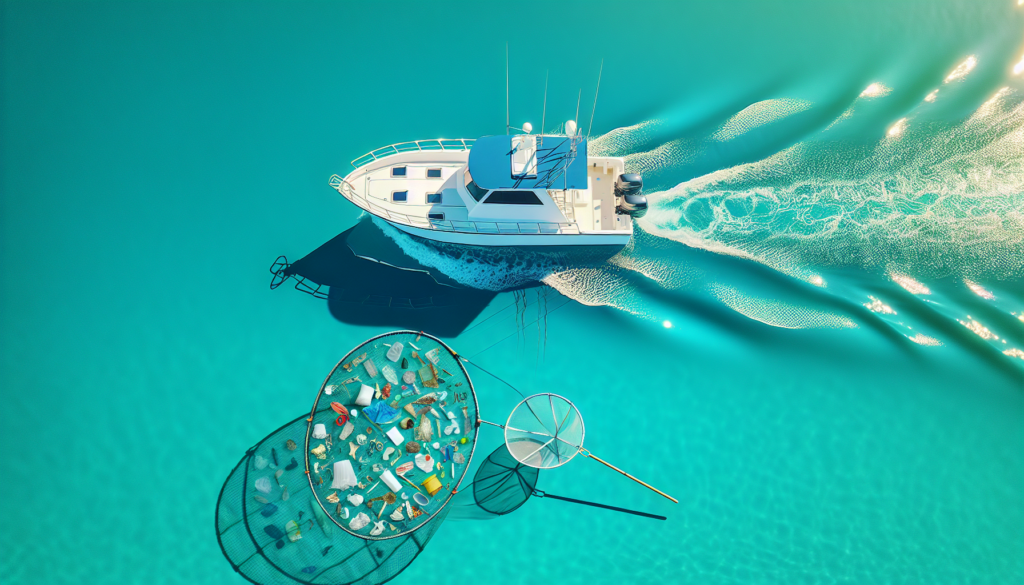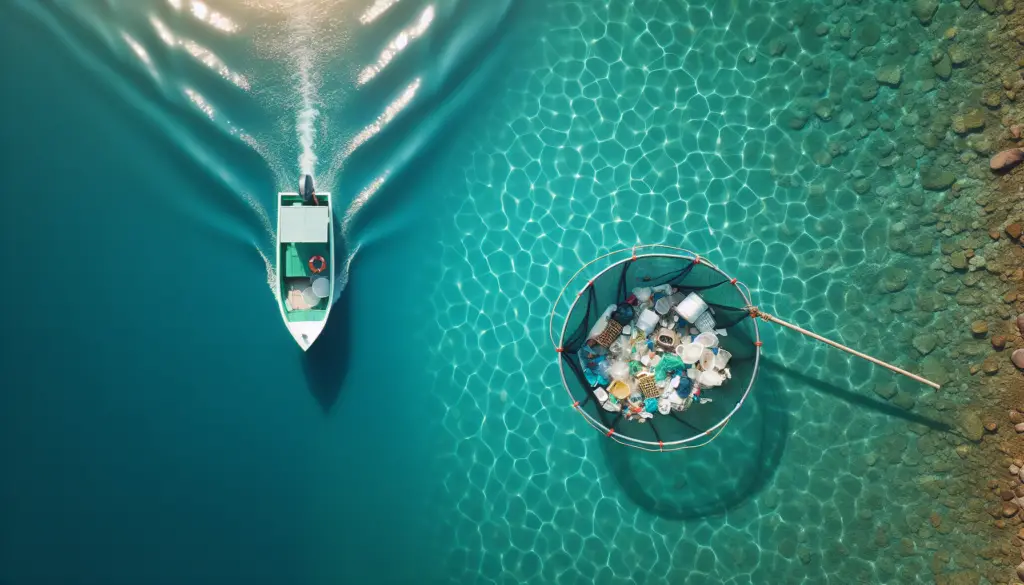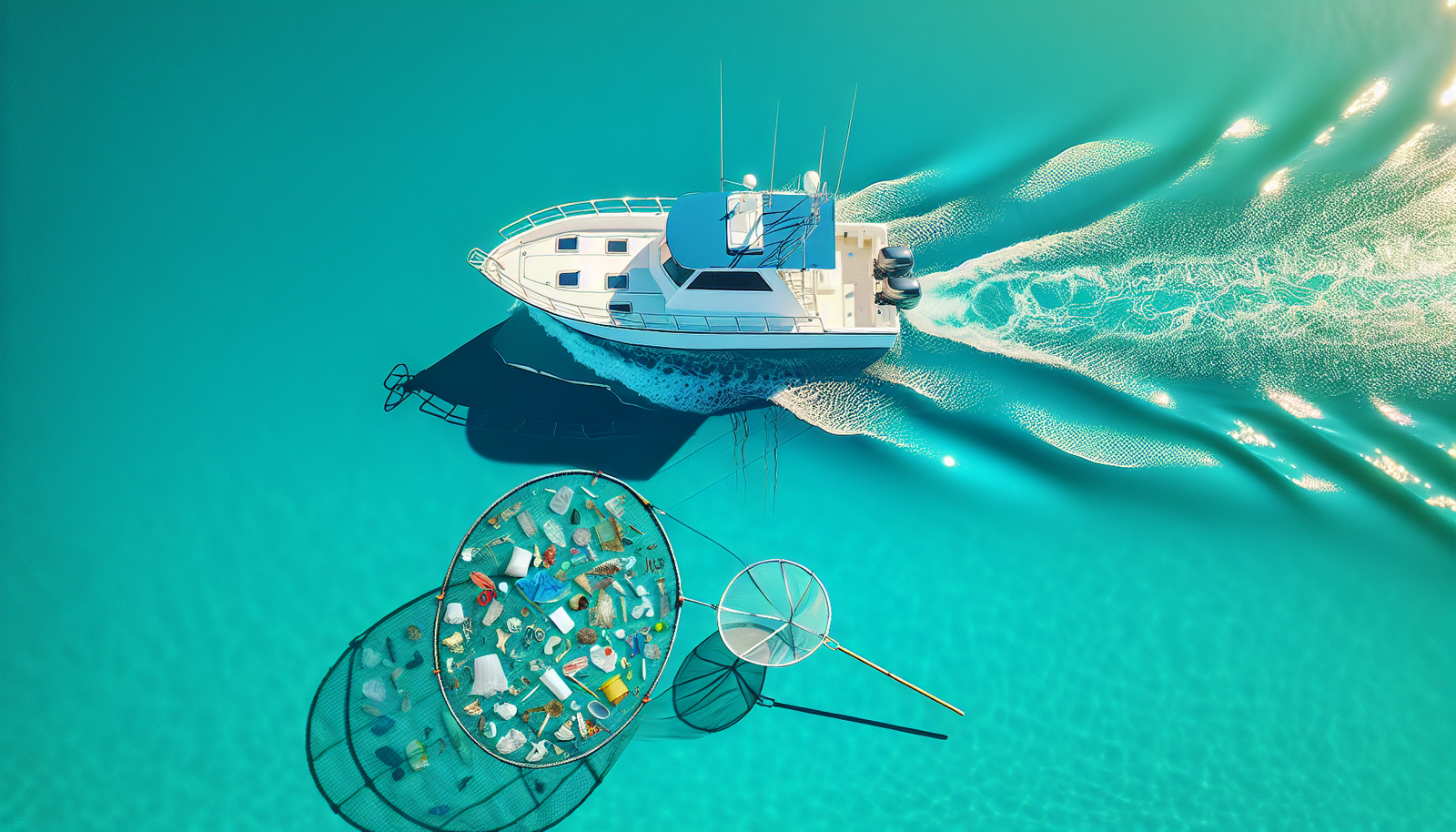Imagine being out on the water, basking in the warm sun, feeling the cool breeze on your face, and hearing the gentle lapping of waves against your boat. Yet, beneath the serene surface, your boat’s engine might be causing some significant environmental damage. “Top Tips For minimizing the environmental impact of boat engines” offers crucial advice for boat owners looking to reduce their carbon footprint and keep our waterways clean. By providing practical and easy-to-implement strategies, this detailed guide empowers you to enjoy your boating adventures without causing harm to our precious marine ecosystems.

Understanding the Environmental Impact of Boat Engines
Boating and shipping activities have a significant impact on the environment and it’s important to understand the role of boat engines in this equation. Amidst the tranquility and enjoyment of boating, few give much consideration to the emissions and pollution caused by their beloved engines. However, just like cars, boat engines emit gases and fine particles that can harm the environment.
The role of boat engines in environmental pollution
Boat engines, especially older models, significantly contribute to environmental pollution. They emit carbon monoxide, nitrogen oxides, and hydrocarbons into the atmosphere, which contribute to air pollution. Also, unlike cars, many boat engines release these pollutants directly into the water, further exacerbating their impact on water bodies and marine life.
Effects of boat engine emissions on water bodies
Boat engine emissions, particularly from two-stroke engines, can severely affect water bodies. They discharge a substantial amount of unburned petrol into the water, resulting in water pollution. This unburned gasoline not only affects the water quality but can also result in the death of marine life and disturb aquatic ecosystems.
The carbon footprint of boat engines
When it comes to the carbon footprint, boat engines can be quite heavy offenders. They burn vast volumes of fuel, especially during lengthy voyages, emitting considerable amounts of CO2. The environmental impact of these emissions can be drastically reduced by choosing engines with better fuel efficiency and by correctly maintaining and operating the engines.
Choosing Eco-Friendly Boat Engine Models
As the world becomes more conscious about the environmental impact of human activities, the boating industry hasn’t been left behind. Green boating is now a growing trend among boat users and industry stakeholders.
The rise of green boating
Environmentally friendly boat engines are fast becoming a necessity rather than a choice. Green boating emphasizes on reducing boating’s impact on the environment by endorsing the use of cleaner and more efficient engines. This development is not only beneficial to the environment but also promotes a sustainable future by advocating for the conservation of resources.
Top rated eco-friendly boat engines
There are several high-rated eco-friendly boat engines in the market today. These engines offer better fuel efficiency and considerably lower emissions than traditional models. They feature advanced technology that minimizes pollution by optimally combusting fuel, which both reduces emissions and improves fuel economy.
Pros and cons of eco-friendly boat engines
While eco-friendly boat engines present several benefits such as less pollution, better fuel efficiency, and long-term cost savings, they have their drawbacks. The initial cost of purchasing these engines can be steep as they incorporate high-tech features. Also, they may require special care and maintenance compared to traditional engines.
Maintaining Boat Engines for Lower Emissions
Proper and regular maintenance of boat engines can significantly help reduce their environmental footprint. Keeping engines in optimal condition increases their efficiency and reduces emissions.
Proper boat engine maintenance procedures
Regular maintenance procedures for your boat engine include changing the oil and filters on schedule, using high-quality engine coolant, inspecting the impeller, and ensuring that the spark plugs are clean and functioning correctly. Regularly inspecting your boat engine for any signs of wear or faults guarantees that it operates at peak efficiency.
How regular tune-ups can reduce emissions
Regular tune-ups can help maintain your boat engine’s performance and reduce emissions. By ensuring that your engine is correctly tuned, you guarantee that it can combust fuel effectively. This reduces the amount of unburned fuel, thus lowering emissions.
The role of proper maintenance in prolonging engine lifespan
Proper maintenance doesn’t just lower emissions; it also increases the lifespan of your boat engine. By keeping the engine properly lubricated and ensuring all components are in good condition, you can prevent damage and unnecessary strain, thereby prolonging the engine’s life.

Fuel Efficiency Measures for Boat Engines
Optimizing fuel efficiency in boat engines can be achieved through a series of measures. These include adopting efficient driving styles, using quality fuel, and considering the type of fuel appropriate for your engine.
Techniques for reducing fuel consumption
To reduce fuel consumption, avoid hard accelerations and decelerate gradually when needed. Keeping your hull clean can also reduce drag and improve fuel efficiency. Furthermore, avoid carrying unnecessary weight as this increases load and fuel consumption.
The benefits of using high-quality fuel
High-quality fuels burn more efficiently, which results in less emission and better fuel consumption. These fuels often have additives that clean the engine, improving performance while simultaneously reducing the engine’s carbon footprint.
The impact of different fuel types on the environment
Different types of fuel have diverse effects on the environment. Biofuels, for instance, burn more cleanly than fossil fuels, making them a more eco-friendly option. However, the availability and cost of such fuels can be limiting factors for some boaters.
Adopting Responsible Boating Habits
Adopting responsible boating habits not only minimizes your boat’s environmental footprint but also conserves resources. It also contributes to the broader objective of protecting marine ecosystems.
Practices for responsible boating
Firstly, it’s crucial to manage speed wisely, as excessive speeds tend to consume more fuel and increase emissions. Additionally, avoid unnecessary engine idling and ensure that you maintain your boat engine regularly.
Effects of speed and driving style on fuel efficiency
The speed at which you operate your boat and your overall driving style can significantly affect fuel efficiency. Driving at high speeds or rapidly accelerating and decelerating can consume more fuel, leading to increased emissions.
Minimizing boat usage during high-traffic times
By minimizing boat usage during high-traffic times, you can help lower congestion and reduce the need for constant acceleration and deceleration, which, in turn, lowers fuel consumption and emissions.
Exploring Renewable Energy Sources for Boating
As technology advances, several renewable energy sources have emerged as viable options for powering boats. These solutions not only reduce the environmental footprint of boating but also have the potential of making boating activities fully sustainable in the future.
Introduction to solar-powered boating
Solar-powered boats harness energy from the sun using solar panels to run electric motors. These boats produce zero emissions and consume no fuel, making them a great option for environmental conservation. They are particularly suitable for short distances and low-speed boating activities.
Feasibility of wind-powered boating
Wind-powered boats use sails or kites to harness wind energy. They are an age-old but very sustainable means of boating. In the modern world, wind power is combined with propellers and rudders to create hybrid systems that not only increase speed but also improve navigation.
Future prospects of electric boats
The future looks bright for electric boats. With continuous advancements in battery technologies, electric boats are expected to have longer ranges and shorter charging times, making them a more viable option for boating enthusiasts.
Implementing Waste Management on Boats
Proper waste management on boats can significantly help protect marine environments. This includes proper garbage disposal practices and treatment and disposal of wastewater.
Proper garbage disposal practices on boats
Always ensure that you dispose of your garbage correctly when boating. Avoid littering in water bodies as this leads to water pollution, which harms marine life. Instead, collect all waste in appropriate bags and dispose of them correctly at designated disposal points.
Practices for dealing with wastewater
Boat wastewater should be treated properly before it’s discharged overboard to avoid introducing harmful substances into the water bodies. Never discharge untreated waste into the water. Alternatively, you can have a holding tank onboard and empty it at the appropriate onshore facilities.
Harmful effects of littering in water bodies
Litter in water bodies can have destructive effects on the marine environment. It can lead to algal blooms, which deplete oxygen levels in water bodies and lead to the death of marine organisms. Some litter also takes hundreds of years to decompose, posing a long-term threat to marine ecosystems.
Understanding and Meeting Emission Standards
There are several emission standards that boat engines must meet. Understanding and adhering to these regulations are critical to minimizing boat engine’s environmental impact.
Current emission standards for boat engines
Current emission standards require boat engines to emit as little pollution as possible. The regulations are mainly inclined toward reducing emissions of carbon monoxide, hydrocarbons, and nitrogen oxides, among other pollutants.
How to ensure your boat engine meets emission standards
To ensure your boat engine meets the emission standards, opt for certified boat engines that meet these standards. Regular inspections and maintenance will also ensure that the engine stays within the set limits.
The role of emission standards in environmental protection
Emission standards play a vital role in environmental protection by limiting the amount of pollution that boat engines can emit. This cuts down the level of pollutants entering the environment and, by extension, the impact on the environment.
Educating Others About Green Boating
awareness about green boating is crucial in reducing the environmental impact of boat engines. The more people are educated about it, the more they can put into practice eco-friendly boating habits.
Importance of raising awareness about green boating
Raising awareness about green boating encourages the adoption of practices that minimize pollution and promote environmental conservation. It helps boat owners understand the environmental implications of their boating practices and how to mitigate them.
Ways to share information and educate others
Sharing information could be as simple as having discussions with fellow boaters and sharing experiences and insights about green boating. Workshops, community forums, and online platforms can also serve as effective platforms to enlighten others about sustainable boating practices.
The role of community in promoting sustainable boating habits
The community plays a significant role in promoting green boating. Through collaboration and communal efforts, sustainable boating habits can be encouraged and widely adopted, leading to a significant reduction in the environmental impact of boat engines.
Legislation and Regulations for Boat Engines
There are local and international regulations that govern the use of boat engines. These rules not only ensure safety but also promote environmental conservation.
Understanding local and international boat engine regulations
Boat engine regulations exist at both local and international levels. They govern how boat engines should be operated, maintained, and disposed of. Understanding these regulations is invaluable in ensuring that your boating activities comply with legal requirements and environmental conservation efforts.
Consequences of violation of boating laws and regulations
Violating these laws and regulations can result in hefty fines and other legal penalties, including losing your boating rights. Moreover, not conforming to these regulations can increase your boating activities’ environmental impact.
How legislations can push for greener boating
By enforcing codes that minimize pollution and promote the use of eco-friendly engines, legislation can significantly contribute to pushing for greener boating. Such regulations promote the development and adoption of advanced engine models that are more efficient and produce fewer emissions, thus moving the industry toward a more sustainable path.
In conclusion, minimizing the environmental impact of boat engines requires collective effort, from choosing and maintaining eco-friendly engines, responsibly disposing of waste, understanding emission standards, and importantly, educating others about the importance of these practices. As we navigate the open seas, let’s also navigate toward a more sustainable and greener boating culture for the benefit of our planet.


